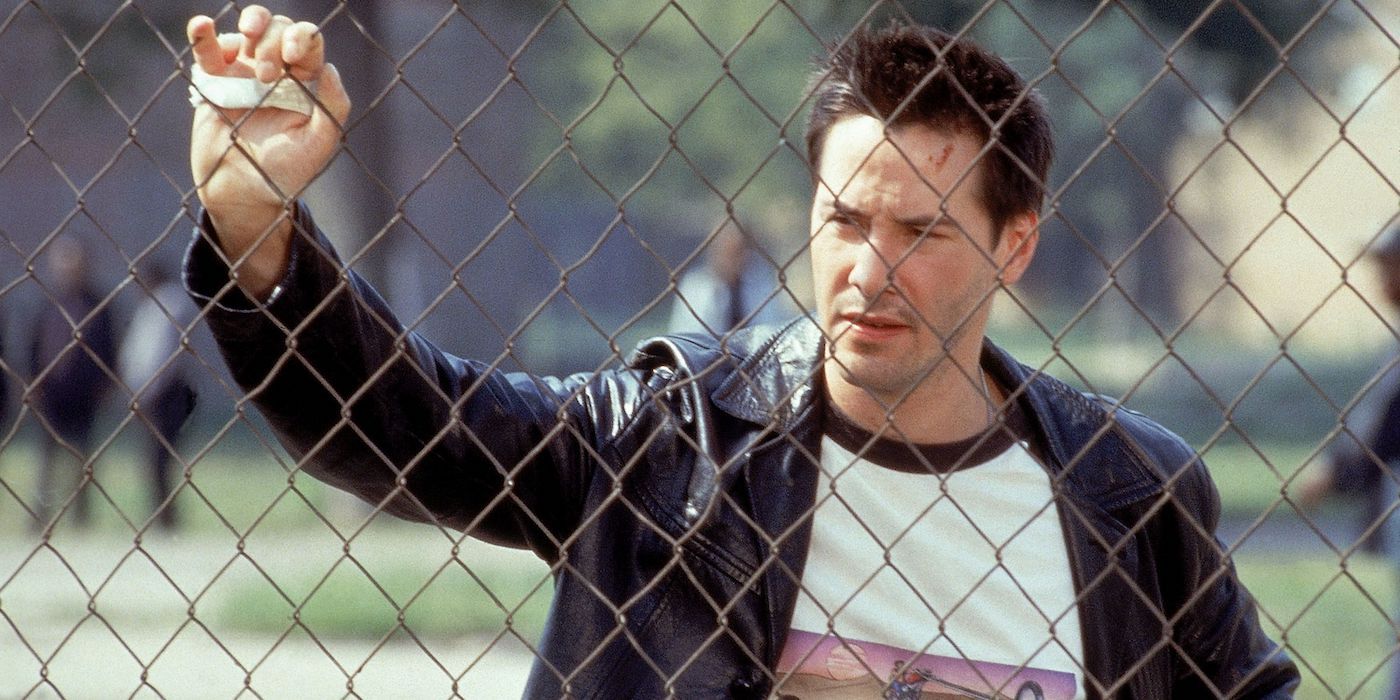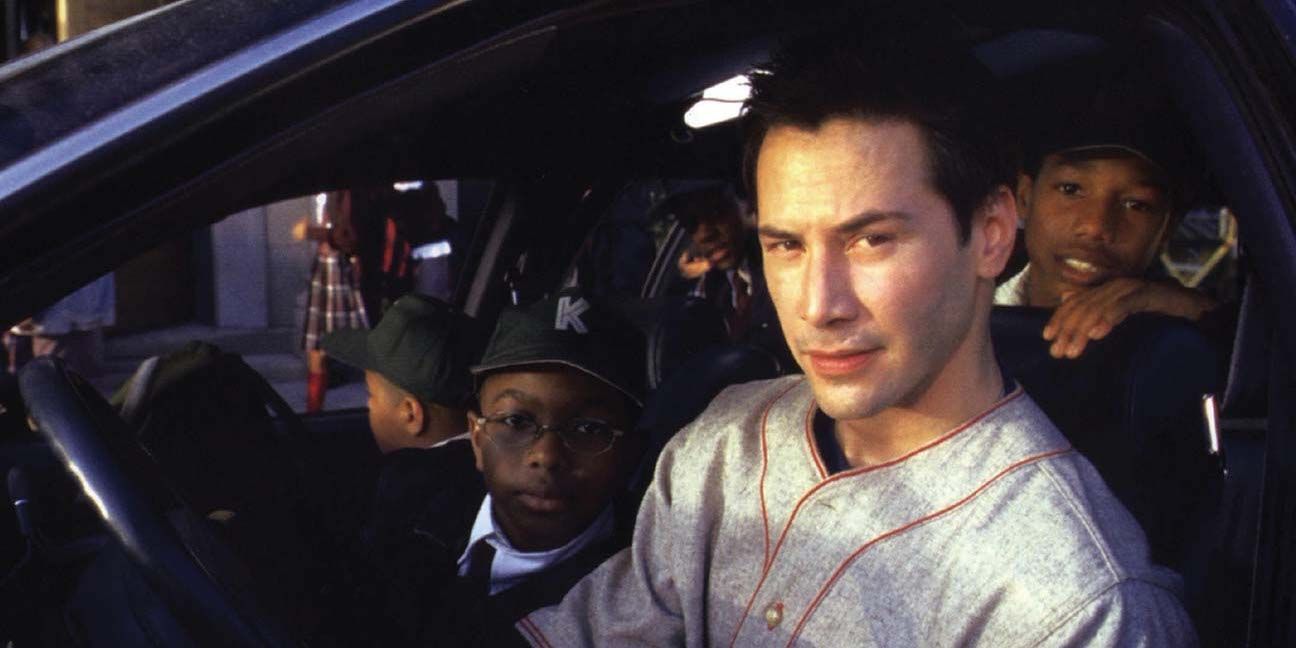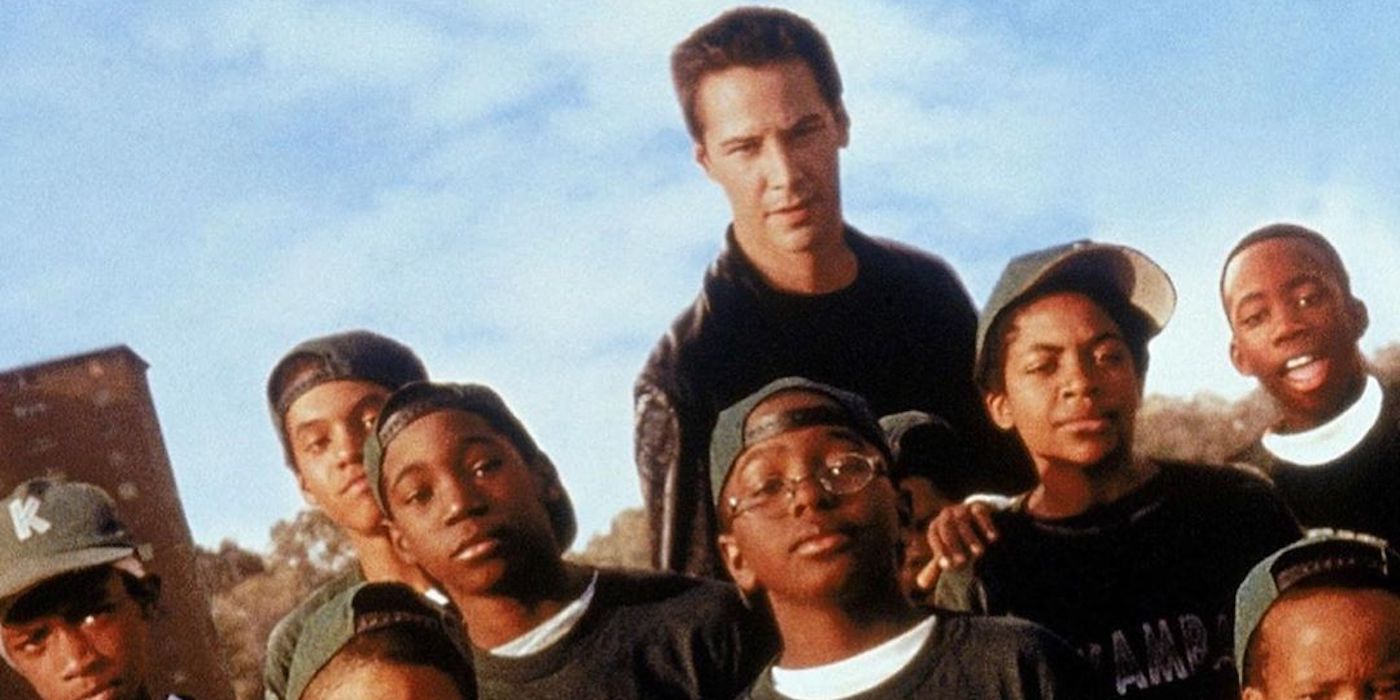The Big Picture
- Hardball satirizes and sidesteps the trope of the white savior by showing that the inner-city children are already good as they are.
- Keanu Reeves' character, Conor, becomes a coach out of survival rather than any desire to be one, leading to an organic coaching style.
- Conor empowers the children by reacting to their circumstances and treating them as worthy individuals, without imposing his own agenda on them.
In fifth grade, we once had a long-term substitute teacher for a science class, and he was a Cool Sub. He let us call him by his first name. He sat on the desk. He brought in a guitar (but never played it). He tossed out candy for the right answers. And most tellingly: he was a White Guy With Dreads. My feelings about him were mixed; I loved the chance for free candy, obviously, but even then I knew something about his persona, his approach to us kids was insincerely calculated, foisted upon us instead of shared organically. Dead Poets Society is a noted, beloved example of this "unorthodox educator inspires kids" subgenre my Cool Sub so wanted to be the protagonist of. This subgenre then took problematic detours into the depiction of overcoming racial and socioeconomic tensions via this hard-working, usually white educator. Films like Dangerous Minds and Freedom Writers calcified this knotted take on the genre, inspiring works of parody like the John Lovitz spoof High School High. In all of these works, the educator develops a plan actively, working to elevate their children above their stuck stations in life, trying their absolute best to be a ladder to a better life. Films like these often age as poorly as my Cool Sub's White Dreads. Then there's Hardball.
Originally released in 2001, Brian Robbins' Hardball is a sports-infused take on this genre, starring Keanu Reeves as a prickly pear assigned to coach an inner-city little league baseball team. After revisiting the film, which I loved upon its initial release, I am delighted to report it holds up and then some, satirizing and sidestepping these tropes of racial saviorhood in effective ways ranging in subtlety. Essentially, Hardball makes the statement that these children are good as they are and that one must simply show up there.
Who Does Keanu Reeves Play in 'Hardball'?
For starters, Keanu Reeves' character Conor has no aspirations or plans of being a coach. Instead of him foisting this identity onto others, it's foisted onto him as a consequence of his hard-living, gambling, addictive ways. He's in so much debt with so many back-alley loan sharks that he'll do just about anything asked of him, which is a clear writing device to ensure a protagonist stays nimble and in the present tense (John Gatins wrote the script based on a non-fiction book by Daniel Coyle). When corporate sleazeball Mike McGlone offers Conor some cash in exchange for Conor picking up his shallow, image-driven charitable efforts coaching kids in Chicago's ABLA housing projects (a keen, underplayed drag at these kinds of empty gestures often made by the wealthy), Conor just says yes because he needs to survive.
This level of on-the-fly survivalism, on observation leading to action rather than any action backpocketed, leads us organically to Conor's coaching style, and ultimately the redemption of both him and the children he coaches. The children on this team, the Kekambas, react to circumstances at every level of their lives. They get a new coach out of nowhere because their old rich one decided he's done, they can't play outside when it gets too dark, they can't play with certain teammates if the league authority figures design it so, they can't walk down certain streets if there are threats to their lives present. Conor is the first person in their lives who views them as the circumstances, and who reacts to them. It's a subtle act of empowerment, of signaling to these children that they are worthy of space and power without making it about him.
What Makes Conor a Remarkable Coach in 'Hardball'?
When the kids start fighting and clowning on each other for missed plays, Conor doesn't admonish them; he speaks like them, mirrors their logic, and brings them closer, more peacefully together on their own terms. When G-Baby (DeWayne Warren) acts as his brother Kofi's (Michael Perkins) agent, negotiating Kofi's return after he left the team in a huff, Conor doesn't wink, balk, or indicate that G-Baby is behaving in any way unusually; he responds to the terms clearly as they are presented to him, yielding constructive activation and, again, subtle empowerment. In one of the film's most triumphant moments, when Miles (A. Delon Ellis Jr.) is forced by the league to remove his headphones when pitching (Conor makes the league officials tell the children themselves; both a dig against problematically POV-foisting adults and another piece of plain-stated empowerment Conor helps foster), Conor simply leads the team in singing The Notorious B.I.G.'s "Big Poppa" so Miles can get what he needs.
Hardball continues to play so crisply and invitingly by this simple equation: Conor gets the team what they need by reinforcing who they are naturally. There's no need for a self-presentation of uplift, icky hairstyles, or candy bribes (though sometimes pizza bribes are expected by G-Baby). Conor looks at what's in front of him and engages with that, plain and simple. And when these plain and simple observations and actions lead to turning the lives of everyone involved around, it feels all the more organically heartwarming, sweet without turning into saccharine, inspirational without turning into manipulation. My Cool Sub could never.
Hardball is available on blu-ray.



